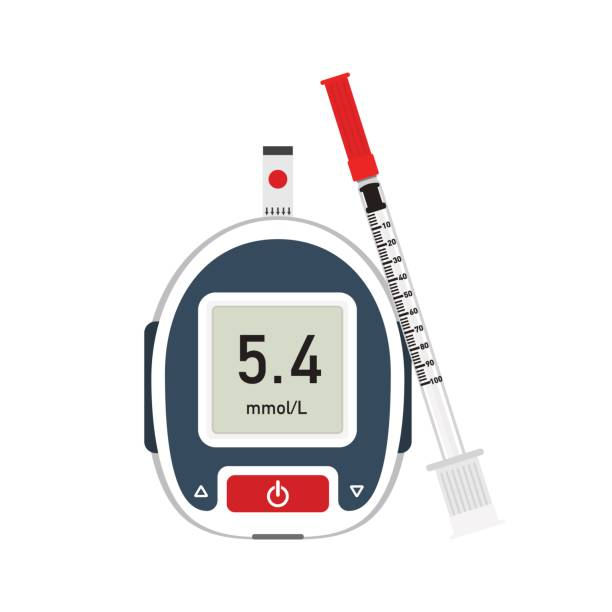Alternative Treatments, Drugs and Medications
Is Ozempic Good For The Kidneys
Ozempic is a medicine used to manage type 2 diabetes. It works by imitating the effects of the hormone glucagon-like peptide-1 (GLP-1) in the body. This hormone helps to regulate blood sugar levels by increasing insulin production while decreasing the amount of glucose generated by the liver. Ozempic includes the active component semaglutide, a long-acting GLP-1 receptor agonist. One question about Ozempic is if it is healthy for the kidneys.
Renal damage is a major consequence of type 2 diabetes, and many of the drugs used to treat it can impair renal function. Some studies have suggested that GLP-1 receptor agonists such as Ozempic may protect the kidneys, while others have expressed concern about the risk of kidney damage. In this article, we’ll look at the available evidence to see if Ozempic is safe and effective for the kidneys.

Ozempic and Kidney Health
Effects on Kidney Function
Ozempic is a medicine used to manage type 2 diabetes. It works by increasing insulin synthesis while decreasing glucose production in the liver. While Ozempic has been demonstrated to be beneficial in controlling blood sugar levels, there have been some concerns about its effects on the kidneys.
Ozempic has not been found in studies to induce damage to the kidneys or affect kidney function in patients with type 2 diabetes who have normal kidney function. For patients with chronic kidney illness, Ozempic may not be the best solution.
Managing Chronic Kidney Disease
People with chronic renal disease must keep their blood sugar levels under control to avoid further kidney damage. Ozempic may not be the best option for these people because it has not been thoroughly explored in this population.
Individuals with chronic renal disease should consult closely with their healthcare professional to discover the best treatment options for their specific requirements. This could include drugs created specifically for diabetics with renal disease, as well as lifestyle adjustments including diet and exercise.
In conclusion, while Ozempic has been demonstrated to be beneficial in controlling blood sugar levels in persons with type 2 diabetes, it may not be the best option for those suffering from chronic kidney disease. Individuals should work closely with their healthcare professional to discover the best treatment options for their personal requirements.

Clinical Evidence and Research
Clinical Trial Outcomes
Several clinical trials have been undertaken to determine Ozempic’s (semaglutide) efficacy and safety in patients with type 2 diabetes. One of the studies, SUSTAIN-6, comprised over 3,000 participants with high cardiovascular risk and found a substantial reduction in the risk of cardiovascular events when compared to placebo.
Another trial, SUSTAIN-10, looked examined the impact of Ozempic on renal outcomes in type 2 diabetes patients and found that the medicine reduced the risk of new-onset or worsening nephropathy. Furthermore, the study discovered that Ozempic was associated with a lower incidence of cardiovascular events, all-cause mortality, and hospitalization for heart failure.
Long-Term Kidney Benefits
Novo Nordisk produced Ozempic, a diabetes medication that has showed promise in lowering the risk of disease complications such as damage to the kidneys. The medicine mimics the activity of the hormone GLP-1, which promotes insulin secretion and lowers glucose synthesis in the liver.
Ozempic has been found in studies to enhance glycemic control while also lowering the risk of kidney damage in persons with type 2 diabetes. In a long-term research, patients treated with Ozempic had a reduced incidence of renal problems, such as albuminuria and renal failure, than those treated with placebo.
Finally, clinical evidence and research indicate that Ozempic may provide long-term renal benefits for patients with type 2 diabetes. However, more research is needed to validate these findings and determine the appropriate dosing and duration of treatment.

Usage and Considerations
Recommended Dosage and Administration
Ozempic is an injection-based medicine used to treat type 2 diabetes. It is vital to remember that Ozempic should only be used with the supervision of a healthcare practitioner.
Ozempic’s recommended starting dose is 0.25 mg once per week for the first four weeks. Following that, the dose may be increased to 0.5 mg once per week. The drug should be administered subcutaneously in the abdomen, thighs, or upper arms.
Potential Side Effects and Risks
Ozempic, like any medicine, can produce negative effects. Ozempic’s usual side effects include edema, nausea, vomiting, dizziness, and headache. These adverse effects are typically minimal and resolve on their own.
However, Ozempic may cause more serious adverse effects. There have been reports of heart attacks and strokes in patients who have taken Ozempic. Before starting this medicine, you should discuss any concerns you may have with a healthcare provider.
Ozempic may also raise the risk of diabetic retinopathy, which is a rare but serious disorder. This disorder can damage the blood vessels in the eyes, resulting in visual loss.
Overall, while Ozempic can be a useful medicine for decreasing blood sugar levels in persons with type 2 diabetes, it is critical to carefully weigh the potential risks and side effects before beginning treatment. It is recommended that you consult with a healthcare practitioner to establish whether Ozempic is appropriate for you.

Lifestyle and Dietary Factors
Impact of Diet and Exercise
A good diet and regular exercise can help manage renal disease. A low-sodium, saturated-fat, and processed-food diet can help control blood pressure and reduce the risk of problems. Consume a range of nutrient-dense foods, including fruits, vegetables, whole grains, lean meats, and healthy fats.
Regular exercise can also assist improve kidney function and lower the likelihood of problems. Exercise can assist to lower blood pressure, reduce inflammation, and boost insulin sensitivity. Most days of the week, it is recommended that you exercise for at least 30 minutes at a moderate level.
Weight Management Strategies
Maintaining a healthy weight is crucial for renal function. Being overweight or obese increases the chance of developing renal disease and exacerbates existing kidney damage. Weight loss solutions should emphasize long-term lifestyle changes, such as increasing physical activity and eating a balanced, nutrient-dense diet.
The Food and Drug Administration (FDA) has approved drugs like Ozempic for weight loss in those who are obese or overweight and have specific medical conditions. Ozempic is a prescription drug that suppresses hunger and helps the body burn more calories. However, it is worth noting that Ozempic has not been carefully tested for its effect on kidney health. Patients should contact with their doctor before starting any weight loss drug.
Finally, lifestyle and nutritional factors are important in the management of renal disease. A healthy diet and regular exercise can enhance kidney function and lower the risk of problems. Sustainable weight control solutions should center on lifestyle modifications, with drugs like Ozempic administered under the supervision of a healthcare physician.
Conclusion
In conclusion, Ozempic’s influence on the kidney function is positive, with studies indicating potential benefits for people with type 2 diabetes. While further research is needed to fully analyze its long-term effects on renal function, current evidence shows that Ozempic may be a good option for persons concerned about their kidney health. As with any medical decision, individuals should meet with their healthcare professionals to discuss their specific health concerns, weigh the potential advantages and dangers, and develop a treatment plan that is in line with their overall well-being. As research in this sector continues, Ozempic marks a big step forward in delivering holistic treatment to people managing diabetes and renal health.
Journey of self discovery


